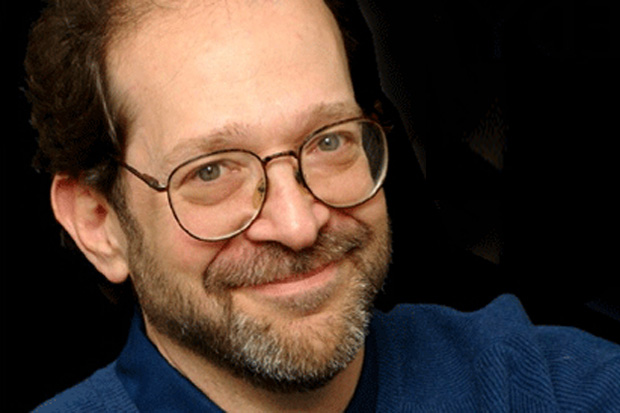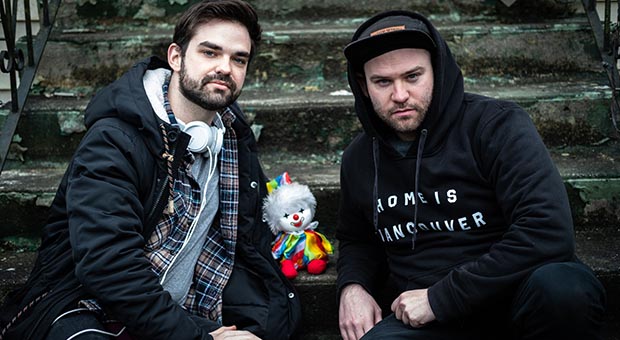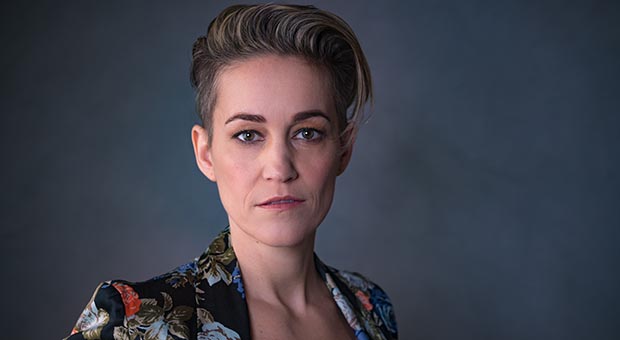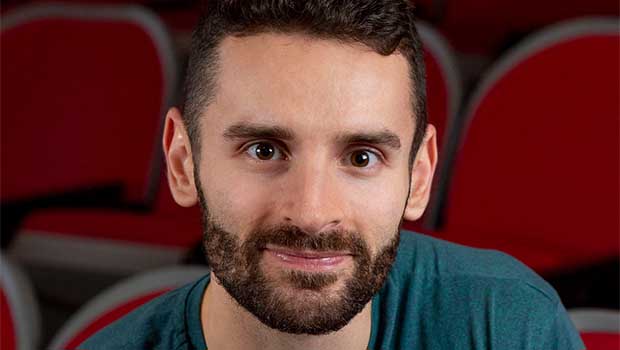
08 Jun The Biz Interview: Steve Kaplan
ABC, Disney, Dreamworks, Paramount and others regularly send their top writers, producers and directors to his L.A. classes. Find out what the industry’s top expert on comedy plans for his upcoming Vancouver class.
Steve Kaplan has been the world’s most respected and leading teacher of comedy for over 15 years. His former students have won 43 Emmys, 6 WGA Awards and an Oscar, and have written such commercial and critical hits as Big Love, Ugly Betty, Rescue Me, Mean Girls 2, Sex and the City, The Class, Friends and more. Executives from Dreamworks, ABC, Disney and others regularly send their top writers, directors, producers and animators to his classes in LA and NY, as do top production companies in cities like Sydney, Singapore and London.
Kaplan brings his class for the first time ever to the Hyatt Regency Vancouver the weekend of June 20-21, 2009. Steve sat down with us to answer some serious questions about comedy.
What makes for a successful comedy?
I think it always starts with characters, the honesty, the truthfulness and the specificity with which they’re created and developed. After that, it depends on the medium. In a feature, it helps to have a strong comic premise, what’s called “the lie that tells the truth.” Place your characters inside this incredible, almost impossible situation, and then follow them honestly and organically, moment-by-moment, as they try to work their way out of it. This way, the comedy-plot, complications, set-pieces-come out of character and relationship, as opposed to gags that seem forced and false.
Is there a difference between writing for the big screen versus sitcom writing?
As opposed to features, half-hour comedies rely less on the premise, the “high-concept” as it were, and more on creating a kind of charming dysfunctional family – kind of like your own family, in that everyone (except you, the lead) seems to be crazy, but better than your own family, in that you don’t have to live with them, you just have to visit them for a half-hour every week..
Another difference is that in features, you establish and complete character arcs over a two-hour period, whereas in sitcoms, characters still change, but in very tiny increments, over long periods of time. Ongoing relationships ebb and flow, but character and character dynamics remain the same for much of the life of the sitcom. Just like in life, people rarely change and when they do, not by much.
Everyone has a different opinion as to “what’s funny,” so how do you teach comedy?
Funny is subjective; what’s funny to you might be off-putting to me. What makes my seven-year old nephew laugh might not amuse an adult. So rather than try to teach what’s funny, (subjective) we focus on universal principles of comedy (objective). And in doing so, we focus on what comedy is, how it works, why it works, and more importantly, what’s going on when it’s not working, and how to fix it. That’s where the “Hidden Tools of Comedy” come in—tools and techniques designed to complement and support your own talent and creativity.
You’ve given your Comedy Intensive class around the world – the US, Asia, Australia, Europe. Why is comedy so universal or do you find yourself having to adjust the material to accommodate the audience each time?
When I first was given the opportunity to present around the world, I have to admit, I was a bit concerned… Clips, which are a large part of the Intensive, are shown to illustrate the Tools. Naturally, most of the clips come from American television and Hollywood films. When I first presented in England, I thought, “Who am I to show comedy clips to the British, the land of Fawlty Towers and Monty Python?” It’s literally bringing coals to Newcastle! When I was invited to speak in Singapore, I thought, “Oh my gosh, they caned a kid just for chewing gum in public. When they see some of the clips I have, I could be executed!” But in each case I was pleasantly surprised at the response to the clips and to the Intensive in general. Customs and mores may change from place to place, but human nature is universal. Audiences laughed at the very raunchy humor of the Farrelly Brothers and Bob Odenkirk and David Cross as loudly in Bristol, England and Singapore as they did in New York and Encino. I’ve found that I’ve had to do very little to adapt the material. Instead, each place I go, my audiences introduce me to new writers and comedians from their neck of the woods. So going around the world has been delightful in the way that I keep acquiring new appreciation for the depth and breadth of the art of comedy.
A major Australian newspaper said, “Steve Kaplan is the funniest man NOT on TV.” Do you think you have to be funny to teach funny?
Well, I’m not COMPLETELY unfunny! But yes, I’m not a performer. My background is that of a teacher, director and theatre producer, and later as a talent development executive. In that capacity, I’ve worked with literally hundreds of writers, seeing what worked and what didn’t, and helping to shape and edit scripts, screenplays and stand-up performances.
What’s the #1 biggest mistake you see comedy screenwriters make when starting or working on a script?
Thinking that they’re superior to the characters they’re writing, not believing in the humanity of their own characters and working overtime to invent ridiculous behavior in a strained effort to “be funny.” Look around. People are already pretty ridiculous without any help from you. As Edward Albee has said, “Let your characters do the work,” meaning that if you create vibrant, flawed characters, give them their head, follow and see where they lead you to. When Tony Kushner was writing Angels in America, a powerful, but still very funny play and screenplay, he found himself stuck in the middle of the play. He’s quoted as saying, “I didn’t know what the fuck I was doing. So I thought, I’m gonna ask a character. Who’s most like me? Louis. So I sat down, and I asked, ‘What is this play about?’” The answer was got him a slew of Tonys and Emmys.
In your class you explain that soap operas are a great way of demonstrating and teaching comedy. Why is that?
Soap operas, no matter what you think of them personally, are great comedy teaching tools precisely because they are, in many ways, the antithesis of comedy. Soap opera is an art form in which everyone – writers, directors, craftsmen, DP, actors – are dedicated to creating drama. By analyzing their choices, we can see, as if in a negative image, some important truths and principles about comedy.
How important is rewriting to comedy?
Pretty important. Without it, the actors will be saying all the typos.
With the exception of possibly “Tropic Thunder,” why don’t they make more politically incorrect comedies like “Blazing Saddles” anymore?
Actually, I think they still make politically incorrect comedy and satire, only they call it The Simpsons, Family Guy, The Daily Show and The Colbert Report. The trouble with politically incorrect features is that it generally takes between two and a half to five years to go from first draft to distribution. Five years ago, they didn’t have Twitter, and Facebook was only for frat boys. The world changes so quickly now that what seemed like a good idea four years ago is already passé by now. Here’s a hint: dump your “Octomom” screenplay – it’s already over.
Complete this sentence: “Comedy is….”
Dying is hard. Comedy is harder. Seriously, comedy is telling the truth, and specifically, telling the truth about people.
When “punching up” a script, what are the most important things to look for or accomplish?
Assuming that there aren’t major story or structural problems, a punch up generally consists of “killing your darlings” by cutting weak and unnecessary gags and sequences, and sharpening your characters’ moment-by-moment perspective. It’s instructive to look at a screenplay like Groundhog Day, for instance. You can download an early draft online, and compare it to the completed film. The draft is full of jokes – in fact, in this draft, Bill Murray is NEVER at a loss for a quip, a put-down or an insult. What is revelatory is how little of it survived the final cut. The jokes might have made it “funnier,” but it also slowed down the story and undercut our belief in the characters, which ultimately hurts the comedy. The biggest laughs in Groundhog Day come not from quips, but from fully defined characters perceiving the world through their own point of view: When Bill Murray, dejected in a bar, describes his metaphysical plight by asking, “What would you do, if every day of your life were exactly the same, and nothing you do matters?” he’s answered by a trucker sitting next to him one who says morosely, “That about sums it up for me.” The comedy comes not from a quip, but from a character seeing the world through his own unique prism, and responding accordingly. While there are a number of successful approaches to structuring a joke, the first and most important thing to work on is character.
During your class, people get into groups to come up with a funny comic premise. What’s the best premise you’ve heard? The worst?
I don’t think I can remember the absolute best. It’s only an exercise, and so the premises are all, by design, pretty raw and underdeveloped. The exercise is designed to show the power of a strong comic premise-the ability to explode the story in the imagination of the writer. One example comes from a workshop a few years ago. A group came up with this premise: “A losing college football team discovers that the only way they can win . . . is to get the nerd . . . laid.” The room gave a small chuckle, and I posed a simple question: “What are some scenes that might be in this movie?” Almost immediately, the audience started shouting out a dozen possible scenes, and coming up with the probable characters: The nerd, the team’s quarterback, his best friends, a big lineman and a speedy wide receiver; the somewhat addled coach; the coach’s daughter. The point is that a good premise has the power and potential to start writing itself. It can be a potent counterbalance to every writer’s dread: the writer’s block, and the blank screen or page that accompanies that block.
What’s the #1 rule to follow when pitching your comedy screenplay or sitcom script?
The #1 rule? Talk to the experts, or better yet, buy their books or CDs: SELLING YOUR STORY IN 60 SECONDS by Michael Hague; SMALL SCREEN, BIG PICTURE by Chad Gervich; or Robert Kosberg’s SELL YOUR IDEA TO HOLLYWOOD.
What advice would you give for aspiring comedy writers?
Hang around with other funny people. There are two great ways to do that. One would be to join an improv group or take improv classes. Since much of comedy is character based, the best way to get inside a character’s head is to be one. Even if you’re not interested in being a performer or stand-up, the comic skills you’ll pick up are invaluable when writing material, whether it’s long form or short form, or just a set-up and punch line. The second piece of advice would be to form or join a writer’s group. Once you’ve written your material, it’s imperative to hear the material read out loud in front of even a small group of friends and colleagues. It’s basic to comedy: the interaction between script/performer and audience. You’ve got to hear how those golden pearls play when read by humans to humans. You’re not looking for hours of rehearsal and polished performances, but just an intelligent read can tell you what’s alive and kicking in your script, and what’s dead as a doornail, only you don’t know it yet. So, in a nutshell: Funny people get funnier when in the company of other funny people.
The Vancouver Comedy Intensive marks the first time you’ll have given the class in Canada. What can we expect?
You can expect a weekend full of fun, comedy, information and illumination. The Intensive originally began as part of a class I was teaching to actors in New York. At the time, I was working in a theatre called Manhattan Punch Line, a theatre completely devoted to comedy, where we were involved in producing plays, readings, sketches, improv shows and stand-up evenings. Some nights we got laughs, and some nights we didn’t. I began to wonder why something that was incredibly funny on Thursday night would get no laughs on Saturday. At the same time, I was teaching classes in improv. Without telling the actors, I started inventing improv games in order to experiment with comedy: what was it, how does it work, why does it work, why does it stop working, and what the hell can you do about it when it does? These experiments led to the discovery of a series of techniques, which in turn led to a forty week Master Class in comedy. When I moved to LA, I continued giving the classes to actors. But given the, shall we say, reduced attention span of the inhabitants there, the 40 week class had to be reduced to a single weekend. Since a few of the participants were unaware of some of the classic comedy references I made during the class, I started showing clips from various films and TV shows I referenced as part of the weekend. A friend suggested that I should start gearing the seminars to writers. We called it the Comedy Intensive, geared mostly to writers (many coming from top studios like Disney and DreamWorks), but also regularly attended by directors, producers, and actors.
The class retains a lot of the flavour and fun from the original days when I was experimenting – we still do a lot of exercises and activities, as well as show a healthy dollop of comedy clips to go along with the lecture part of the weekend – with the ultimate goal of giving you the tools and principles you’ll need to understand, write, direct, produce or perform comedy.







